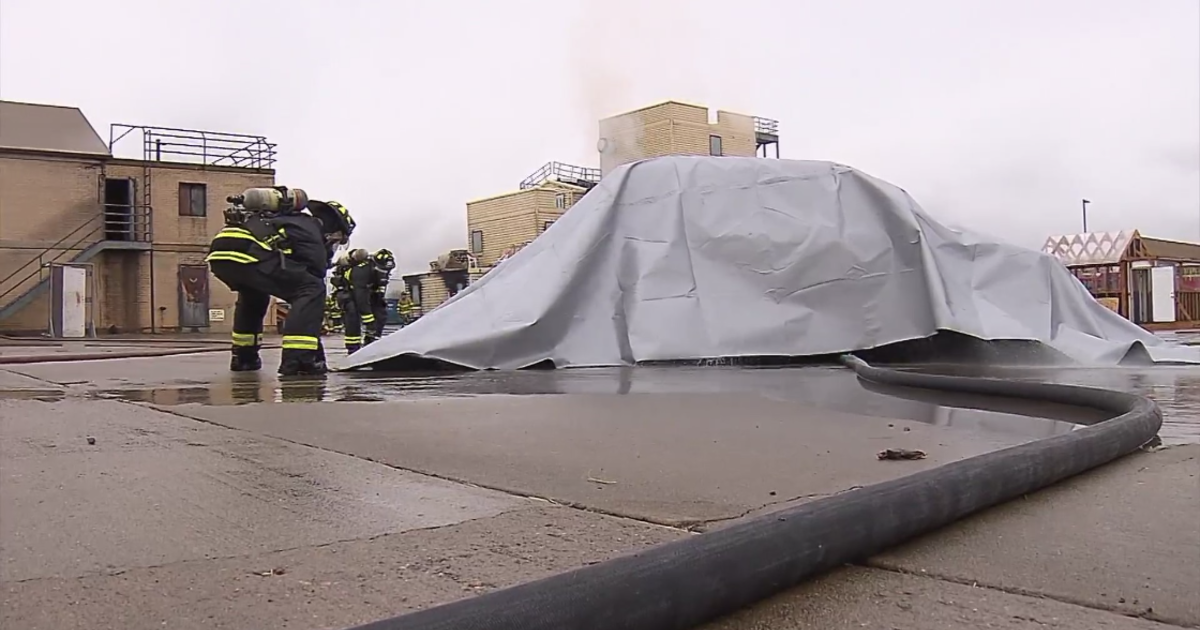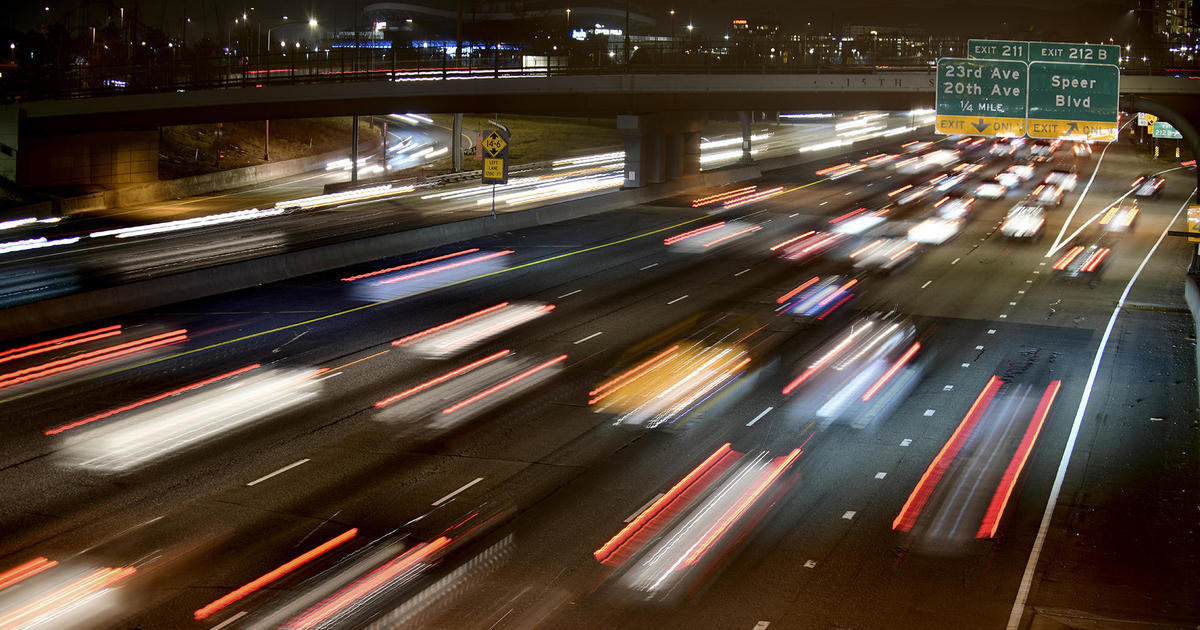Hickenlooper Pushes Natural Gas Vehicles
OKLAHOMA CITY (AP) - Natural gas vehicles are not yet as common as more traditional uses of the fuel like gas-powered furnaces, stoves and water heaters.
But Oklahoma Gov. Mary Fallin and Colorado Gov. John Hickenlooper have launched an initiative to increase the use of natural gas vehicles in their state automobile fleets, an effort they hope will make the vehicles more affordable for the average car buyer.
"It's a win, win, win," Hickenlooper said. Driving natural gas vehicles instead of cars and trucks powered by gasoline or diesel fuel will save money, create a new demand for a fuel that is plentiful in the U.S. and reduce the nation's dependence on foreign oil, he said.
"I think it makes the world safer," Hickenlooper said.
The initiative will also promote Oklahoma's natural gas industry, said Fallin's communications director, Alex Weintz. Oklahoma was the third-largest natural gas-producing state in 2009 behind Texas and Wyoming, according to the U.S. Energy Information Administration.
"What's great for Oklahoma is that we have an enormous amount of natural gas right here," Weintz said.
The biggest market for natural gas vehicles currently is light-duty utility and delivery trucks, said Michael Ming, Fallin's secretary of energy who helped develop the plan.
"That segment is already going on its own," Ming said. But converting a gas- or diesel-powered car or truck to burn natural gas costs up to $10,000, "which puts it out of the price range of average consumers.
"How can the state move the needle?" he asked.
Fallin, Hickenlooper and the governors of seven other states have signed a memorandum promising to invest in natural gas vehicles when they replace older cars and trucks that burn traditional fuels. Its aim is to encourage U.S. automakers to develop original equipment: fleet natural gas vehicles that will also meet public demand.
"The intent is to get a functional and affordable four-door vehicle," Ming said. "They're on this. We just want to partner with them and help them along."
This year, the states' plan to jointly issue a multi-state request for proposal to give car and truck manufacturers a demand base sufficient to support the design, manufacture and sale of natural gas vehicles, Ming said.
Besides Oklahoma and Colorado, the governors of Kentucky, Maine, New Mexico, Pennsylvania, Utah, West Virginia and Wyoming have signed a memorandum committing their states to the initiative. Hickenlooper said Texas also plans to join.
Ming said the states have committed to acquiring 500 natural gas vehicles each year. If enough states commit to purchasing the vehicles, it would justify the development costs of new cars and trucks.
"We're getting close," Hickenlooper said. "My guess is that one of those companies is going to jump at this."
The Colorado governor said it could take up to two years before the first original-equipment natural gas vehicle rolls off a U.S. assembly line.
The initiative is the latest in a series of programs undertaken by officials in Oklahoma to encourage motorists to fuel their cars and trucks with compressed natural gas, a plentiful fuel that is more economical and cleaner burning than traditional motor fuels.
In 2009, the Oklahoma Legislature adopted measures intended to expand the number of vehicles in the state that run on alternative fuels like compressed natural gas and also expand the number of publicly available compressed natural gas fueling stations.
Currently, there are 67 natural gas fueling stations in the state, Ming said. Many of them are operated by Oklahoma Natural Gas, which in 2011 had an increase in retail sales of compressed natural gas of more than 100 percent, spokeswoman Cherokee Ballard said.
In 2010, the company sold 464,734 gallon equivalents of compressed natural gas at stations available to the public, according to information provided by ONG. Last year, the company sold 1,052,301.
"It just shows that Oklahomans are embracing compressed natural gas and want to have an Oklahoma source to fuel their vehicles," Ballard said.
Switching to natural gas vehicles makes economic sense for state government as well as private motorists, Ming said. Natural gas vehicles get about the same fuel mileage as a gas-powered vehicle. But a gallon of gas currently costs on average about $3.20 in Oklahoma, while a gallon equivalent of compressed natural gas costs just $1.85.
Ming said state officials estimate Oklahoma taxpayers could save up to $350,000 a year by switching to natural gas vehicles. Burning natural gas also prolongs engine life, he said.
The initiative, launched late last year, is part of Fallin's Oklahoma First Energy Plan, which outlines strategies for energy conservation, research and support for alternative energy sources like wind power, solar power and bio fuels.
"This initiative has the potential to be a true game-changer for both the automobile industry and the energy industry," Fallin said at the time. "States have tens of thousands of fleet automobiles, and by partnering with car manufacturers to bring an affordable and functional NGV to market, we're helping to develop the products and infrastructure for cleaner, more cost-effective transportation.
"Not only will that bolster our economic security by creating jobs, it will improve our national security by helping to wean the United States off of foreign oil," she said.
(© Copyright 2012 The Associated Press. All Rights Reserved. This material may not be published, broadcast, rewritten or redistributed.)



